8 start with Z start with Z
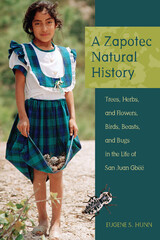
San Juan Gbëë is a Zapotec Indian community located in the state of Oaxaca, a region of great biological diversity. Eugene S. Hunn is a well-known anthropologist and ethnobiologist who has spent many years working in San Juan Gbëë, studying its residents and their knowledge of the local environment. Here Hunn writes sensitively and respectfully about the rich understanding of local flora and fauna that village inhabitants have acquired and transmitted over many centuries. In this village everyone, young children included, can identify and name hundreds of local plants, animals, and fungi, together with the details of their life cycles, habitat preferences, and functions in the economic, aesthetic, and spiritual lives of the town.
Part 1 of this two-part work describes the community, the subsistence farming practices of its residents, the nomenclature and classification of the local biological taxonomy, the use of plants for treating illnesses, and the ritual and decorative roles of flowers. Part 2 is available online, and includes detailed inventories of all plant, animal, and fungal categories recognized by San Juan’s people; a series of indexes; a library of more than 1,200 images illustrating the town’s plants, people, landscapes, and daily activities; and sounds of village life.
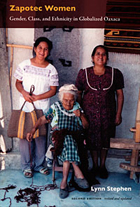
Stephen presents new information about the weaving cooperatives women have formed over the last two decades in an attempt to gain political and cultural rights within their community and standing as independent artisans within the global market. She also addresses the place of Zapotec weaving within Mexican folk art and the significance of increased migration out of Teotitlán. The women weavers and merchants collaborated with Stephen on the research for this book, and their perspectives are key to her analysis of how gender relations have changed within rituals, weaving production and marketing, local politics, and family life. Drawing on the experiences of women in Teotitlán, Stephen considers the prospects for the political, economic, and cultural participation of other indigenous women in Mexico under the policies of economic neoliberalism which have prevailed since the 1990s.
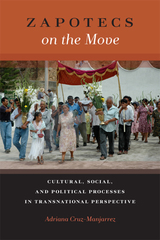
Based on multi-site fieldwork conducted over a five-year period, Adriana Cruz-Manjarrez analyzes how and why Yalálag Zapotec identity and culture have been reconfigured in the United States, using such cultural practices as music, dance, and religious rituals as a lens to bring this dynamic process into focus. By illustrating the sociocultural, economic, and political practices that link immigrants in Los Angeles to those left behind, the book documents how transnational migration has reflected, shaped, and transformed these practices in both their place of origin and immigration.
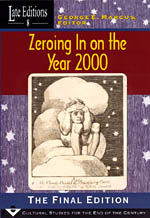
The book begins with a fascinating, at times poignant, look back at the inception and progress of the series, in which the contributors reflect on how the shifting contexts for the production and reception of the series has been a reliable barometer of the profound ways in which traditional forms of knowledge about society are changing. Then, appropriate to the end of the century and of the series, the focus turns to pieces that deal with social phenomena that evoke the value of zero. They explore the idea of a zero state as it relates to artificial intelligence, euthanasia, cryonics, money, and the disappearing idea of society itself in the discourse of contemporary politics.
Far from being the loss of meaning, the consideration of zero entails the proliferation of meaning in the face of voids, absences, and ultimately, of puzzles like the contemplation of death in life. In this way, so many of the fin-de-siècle conditions that have been documented in this series have exemplified precisely this quest for meaning at or near zero points of change, of ends and beginnings, in social life.


In this provocative book, the authors demonstrate that zoos tell us as
much about humans as they do about animals and suggest that while animals
may not need zoos, urban societies seem to.
A new introduction takes note of dramatic changes in the perceived role
of zoos that have occurred since the book's original publication.
"Bob Mullan and Garry Marvin delve into the assumptions about animals
that are embedded in our culture. . . . A thought-provoking glimpse of
our own ideas about the exotic, the foreign." -- Tess Lemmon, BBC
Wildlife Magazine
"A thoughtful and entertaining guided tour." -- David White,
New Society
"[An] unusual and intriguing combination of historical survey, psychological
enquiry, and compendium of fascinating facts." -- Evening Standard
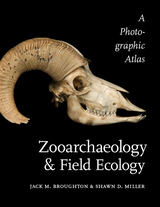

READERS
Browse our collection.
PUBLISHERS
See BiblioVault's publisher services.
STUDENT SERVICES
Files for college accessibility offices.
UChicago Accessibility Resources
home | accessibility | search | about | contact us
BiblioVault ® 2001 - 2024
The University of Chicago Press









